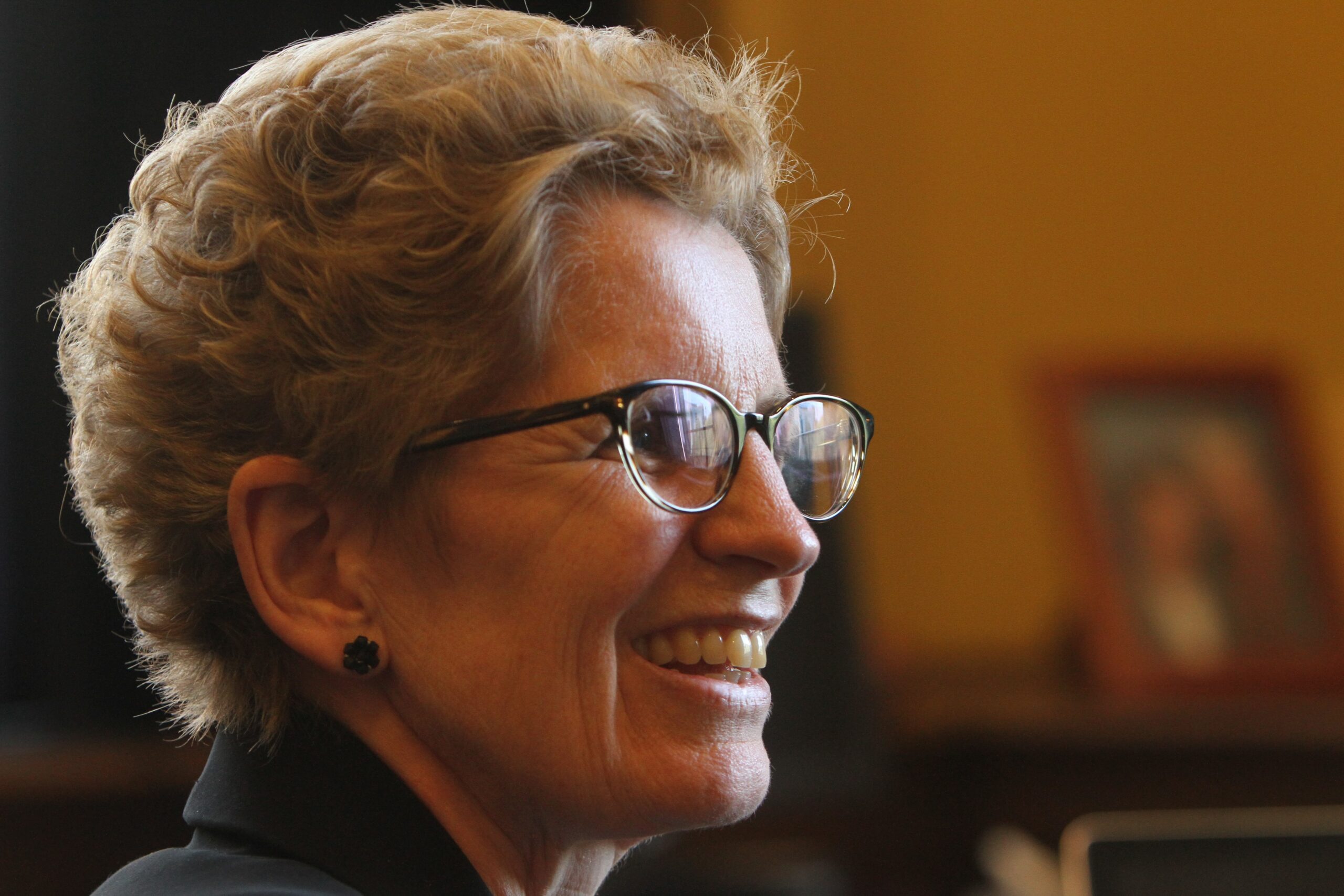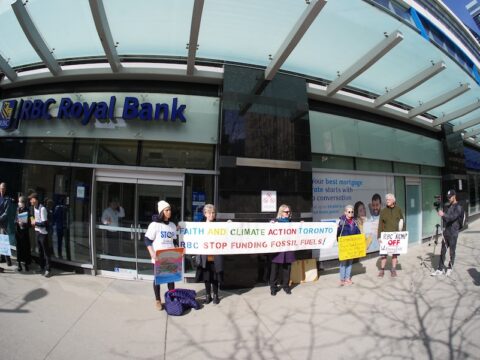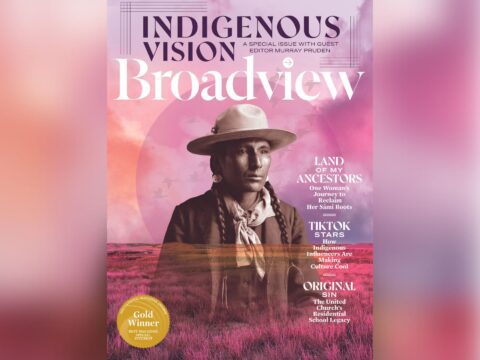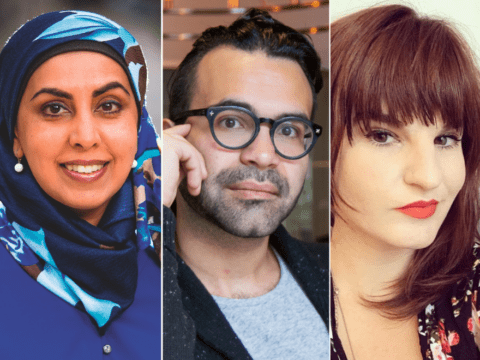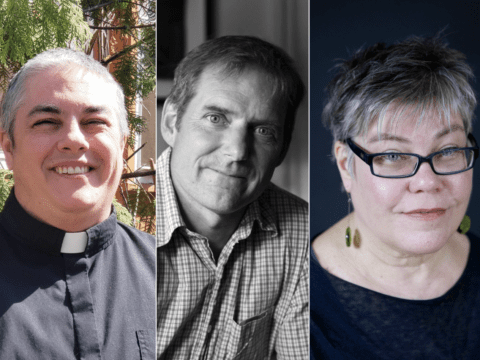Kathleen Wynne made history in February by becoming Ontario’s first female premier and Canada’s first openly gay premier. She spoke to Mardi Tindal at Queen’s Park about faith, politics and community.
Mardi Tindal: Can you tell me about your involvement with the United Church?
You may unsubscribe from any of our newsletters at any time.
Kathleen Wynne: I feel like this is a bit of a tricky subject for me. I went back to church when my kids were very small, to Fairlawn United. And I honestly went back looking for some kind of sanctuary. I had three little kids, and it was just this place that I could go that was quiet and meditative. And then the minister, Frank Meadows, started talking to me about joining and I said, “But I have a lot of doubts.” He said, “That’s exactly why we want you.”
MT: So that was coming back, having grown up in the church in Richmond Hill, Ont.?
KW: Yes, I grew up in Richmond Hill. I joined CGIT [Canadian Girls in Training] and was very much part of the church. When I went back, it was about community. It was a place that would allow me and my children and my husband at the time, and then my partner — because Jane and I are very much part of the church — to be integrated into the community.
MT: How did your congregation respond when you became premier?
KW: It’s been a very loving community. I spent a lot of years on the executive council and on the ministry and personnel committee before I got involved in electoral politics. And then Jane and I were among the first gay couples to be married at the church. We’d been through that process of being married, being out, and people coping with that. So it was a very accepting place and has continued to be.
MT: You and I met at a Truth and Reconciliation event with residential school survivors in Toronto, and I noticed when you spoke at the Liberal leadership convention that you began by acknowledging the traditional territory on which the convention met. What made that important to you?
KW: I believe just so strongly that we’ve lost the thread. As a culture, we’ve collectively forgotten our history on this continent. I was in Michigan last weekend, meeting with governors and other premiers about protecting the Great Lakes. At one point, one of the governors was talking about the original stewards of the water. And he was talking about farmers! I interjected and said, “Actually, our First Nations and Aboriginal people are the first stewards of the water.”
We have to remind ourselves over and over again. I try to gently nudge people into a new norm. Because I think if we can put that memory back into people’s consciousness, it helps when we then talk about Aboriginal rights.
MT: What advice do you give to church people about how best to influence or be in relationship with government?
KW: I think the church is often afraid to mix our practice with politics. I’m always so happy when I hear a preacher bring in the current events of the day. We should help each other take part in those conversations. The connection between social justice and my faith, my membership in the United Church: those are inextricably wound. That’s a fundamental reason we have a church, to fight for a better world. So engagement, talking about subjects that are difficult, pushing ourselves.
There’s ongoing discussion about how to bring young people back into the church, and I think it’s going to take us going out of the church building, to them. So I think we have to be a bit braver. I don’t need to tell you about the number of hours we spend talking about the roofs, the boilers, the walls and all of it. I’ve done my years on the executive council, and I totally understand why that has to happen, but we have to simplify in some way so we can focus on those things that are our raison d’être.
MT: You’ve talked about how complex problems require collaborative solutions. But where do you draw the line and say, “This is where collaboration stops?”
KW: Oh, when we start repeating ourselves and we go through the third repetition of what we’ve all said. I think sometimes we keep talking because we don’t feel that we’ve been heard. If we can be better about actually hearing each other and acknowledging that we’ve heard each other, that will allow us to stop and come to a decision. There is a time to make a decision. But if I keep trying to move, and you’re not going to move, then that’s where positional authority comes in. I don’t like using positional authority. I would prefer not to, but if I have to — and I’ve tried the other — then I will.
MT: When you first took marker to poster board in those early days of community organizing, did you ever imagine that you might end up in this office?
KW: No. What I always say to young people is just watch for the doors that open and don’t be afraid to walk through them. But you don’t know which doors will open. I think the most I would have said 20 years ago was that I might be a city councillor. But this is a huge privilege and honour, and my grandparents would have loved it. They were church people, but they were very much of the world and interested in the role of the church and government and community, all together.
MT: How does your current role compare to your early years in community leadership? What is the same and what’s different?
KW: The church gave me a safe, nurturing place to test my leadership skills. When I first joined the M&P committee, I was anxious. I’d been asked to serve because there weren’t a lot of younger people on it, and it felt like it was a responsible position. But there were always people encouraging you, which is different from this environment. This is a very competitive environment.
I’d had that experience as a young kid at Richmond Hill, too, so the church was a place that was a testing ground for me. It’s different here, but I try to be supportive of people and encouraging.
MT: I think many Canadians are uncomfortable with mixing faith and politics. How do you see the relationship? Can you speak to that from your own experience?
KW: This is why I wanted to take my children to church. I believe that it’s really important for all of us to think about our moral compass and where that comes from. I wanted to give my kids that opportunity.
And this is the tricky part for me. . . . It’s that sense of connection to something: first of all with each other in the congregation, and then to whatever it is that goes beyond our flesh and blood, whatever that spiritual thing is that connects us. Being able to tap into that through the music, through the words, through the fellowship. I draw strength from having had the opportunity to be part of that community. And no matter what I do in my public life — and there are difficult things that I have to do — I know I can go back there, that I will be accepted (pause).
I don’t know why that makes me emotional, but it does. They watched me go through a divorce, they stayed with me through a transition to being in a same-sex relationship, and they have not abandoned me. So if I can’t be as pure as I would like to be in my political life, I don’t believe they’ll abandon me. They will tell me what they think and I can ask them what they think, and we can have a really good exchange. But at the end of it all, we’re friends and we’re community.
This interview has been edited and condensed.
***
This story first appeared in The United Church Observer’s July/August 2013 issue with the title “‘The church gave me a safe, nurturing place to test my leadership skills.’”

